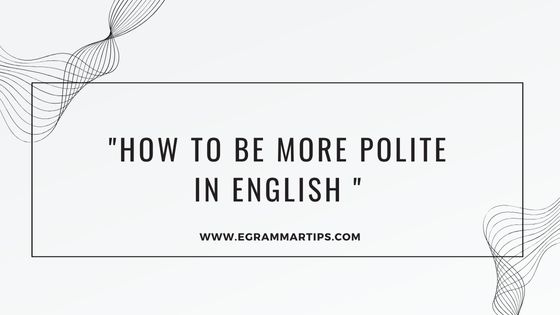
Have you ever felt out of place in an English-speaking environment, struggling to find the right words to express yourself politely?
Politeness is a fundamental aspect of effective communication, especially in English-speaking cultures. Whether you’re a native speaker or learning English as a second language, understanding how to be more polite in English can significantly improve your interactions. This lesson will provide you with practical tips and strategies to enhance your politeness and communicate more effectively.
1. Use Polite Expressions
Polite expressions soften your requests and statements, making them sound more respectful.
•Please:
Adding “please” to your requests shows respect and consideration.
“Can you pass the salt, please?”
“Please close the door when you leave.”
•Thank You:
Expressing gratitude is crucial in polite conversation.
“Thank you for your help.”
“I really appreciate it. Thank you!”
•Excuse Me:
Use this to get someone’s attention politely.
“Excuse me, do you have the time?”
“Excuse me, may I interrupt for a moment?”
•Sorry/Pardon:
Apologizing for mistakes or when you don’t understand something shows respect.
”Sorry for the inconvenience.”
“Pardon me, could you repeat that?”
2. Use Indirect Language
Indirect language is less forceful and more polite.
•Would/Could:
These modal verbs make requests softer.
“Would you mind helping me with this?”
“Could you lend me a hand?”
•Do You Mind/Is It Okay If:
These phrases are used to ask for permission politely.
“Do you mind if I open the window?”
“Is it okay if I borrow your pen?”
3. Show Respect
Showing respect for others is a key aspect of politeness.
•Titles and Names:
Use appropriate titles and surnames unless invited to use first names.
“Good morning, Mr. Smith.”
“How are you, Dr. Johnson?”
•Acknowledging Others:
Acknowledge others’ contributions and feelings.
“I understand your point of view.”
“That’s a valid concern.”
4. Positive Language
Using positive language can make your interactions more pleasant.
•Affirmative Words:
Use words that convey positivity and encouragement.
“That’s a great idea!”
“You did an excellent job!”
•Compliments
Complimenting others shows appreciation.
“I love your presentation.”
“You have a wonderful sense of style.”
5. Avoiding Negative Words
Minimize the use of negative words to maintain politeness.
•Avoiding Blame:
Instead of blaming, use neutral language.
“Let’s find a solution” instead of “It’s your fault.”
“There seems to be an issue” instead of “You made a mistake.”
•Polite Disagreement:
Disagreeing politely is important to maintain respect.
“I see your point, but I think we should consider…”
“That’s an interesting perspective, however…”
6. Body Language and Tone
Non-verbal cues are also important in conveying politeness.
•Eye Contact:
Maintain appropriate eye contact to show engagement.
•Smiling:
A smile can make your interaction more friendly and positive.
•Tone of Voice:
Use a calm and gentle tone to avoid sounding harsh or aggressive.
Examples Sentences :
Normal: Can I have some water?
Polite: Could I please have some water?
Normal: I want a refund.
Polite: I would like to request a refund.
Normal: Give me the report.
Polite: Could you please give me the report?
Normal: You’re wrong.
Polite: I’m afraid I have to disagree with you.
Normal: Move.
Polite: Excuse me, could you please move?
Normal: I need your help.
Polite: Could you help me, please?
Normal: Stop talking.
Polite: Could we please be a bit quieter?
Normal: This is not good.
Polite: I’m not quite satisfied with this.
Normal: Do this for me.
Polite: Could you do this for me, please?
Normal: Hurry up.
Polite: Could we please speed this up a bit?
Normal: I don’t like this.
Polite: I’m not very fond of this.
Normal: What do you want?
Polite: How can I help you?
Normal: Sit here.Polite: Would you like to sit here?
Normal: Leave me alone.
Polite: Could I have some time to myself, please?
Normal: I’m busy.
Polite: I’m a bit tied up at the moment.
Normal: Don’t do that.
Polite: I would prefer if you didn’t do that.
Normal: Why did you do that?
Polite: May I ask why you did that?
Normal: I need this done now.
Polite: Could you please have this done as soon as possible?
Normal: Clean this up.
Polite: Could you please tidy this up?
Normal: You need to fix this.
Polite: Could you please look into fixing this?
I hope you are enjoying our Daily spoken English lessons !
Really nice course